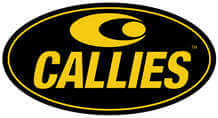
MS Access As A Dev Tool
Access continues to be a highly efficient tool for business database development.
The Best Microsoft Access Database Solutions owner, consultant, and principal programmer is Alison Balter - a recognized expert Microsoft Access consultant. Alison is the author of 15 Microsoft Access training books and 200+ training videos. She is a frequent guest speaker at MS Access conferences and has developed hundreds of applications for businesses of all types.
We know your business data is important; we listen to your concerns, ask questions, and gather information from all stake holders. We discuss your needs and requirements for your database. We find out what you want, why you need various features so we can obtain as much information as possible. Once we have the information we need, we work with you to design the proper database architecture, plus the dashboards, the questions (queries), forms, and reports you need for an excellent database system.

We also create websites designed for speed to display your data accurately, using ASP.NET technology. Fast, secure, and robust, our ASP.NET web sites and web applications give you true business tool for finding and displaying information dynamically on the web.






Access continues to be a highly efficient tool for business database development.

How to create a Microsoft Access application with some unique tips and tricks.

Your Access developer near me has some great info for you about using Access efficiently.
Call MS Access Solutions at (323) 285-0939 For Complimentary Consultation
Yes/No Fields: When One of Two Answers Is Correct
You should use Yes/No fields to store a logical true or false. What's actually stored in the field is -1 for Yes, 0 for No, or Null for no specific choice. The display format for the field determines what the user actually sees (normally Yes/No, True/False, On/Off, or a third option— Null—if you set the TripleState property of the associated control on a form to True). Yes/No fields work efficiently for any data that can have only a true or false value. They not only limit the user to valid choices, but they also take up only one bit of storage space.OLE Object Fields: The Place to Store Just About Anything
Microsoft designed OLE Object fields to hold data from any object linking and embedding (OLE) server application registered in Windows, including spreadsheets, word processing documents, sound, and video. There are many business uses for OLE Object fields, such as storing resumes, employee reviews, budgets, or videos. However, in many cases, it is more efficient to use a Hyperlink field to store a link to the document rather than store the document itself in an OLE Object field.Attachment Fields: Storing Several Files in a Single Field
Using the attachment field type, you can store multiple attachments in a single field. Those attachments can even be of various types. For example, you can use an Excel spreadsheet and a Word document in a single field. Attachment fields are meant to replace their predecessor, OLE Object fields. With OLE Object fields, Access stored the bitmap of the object in the Access database. This caused database bloat. Access stores the data in Attachment fields much more efficiently.There are additional benefits of Attachment fields. For example, Access renders image files and displays the program icon associated with other file types. If a field contains a photo, spreadsheet, and Word document, Access will display the image and will present application icons for the other objects. Access compresses the objects as it stores them, unless those files are compressed natively. Finally, you can manipulate attachments programmatically!
There are also some other things about Attachment fields that you should be aware of. You can attach a maximum of 2GB of data per database, and each attachment must be less than 256MB in size. You must use the Attachments dialog box (see Figure 2.7) to add, edit, and manage attachments, unless you manage them programmatically.
This material orginally appeared in Alison Balter's book Mastering Microsoft Office Access 2007 Development. Reprinted here by author's permission.
When you need a Microsoft Access programmer for your Anaheim CA business, call MS Access Solutions at (323) 285-0939. We have over 25 years experience in Microsoft Access programmer solutions. We create Access database applications for all sectors, consisting of hospitals, government agencies, the U.S. military, universities, agriculture, workers services, and insurance provider. We can take care of the most advanced as well as complicated Access and also SQL Server database programming for your business as well as smaller projects, like fixing damaged Access database forms, MS Access reports, Access macros, and VBA code.
Access programmer cities we serve: Access Programmers Riverside California

